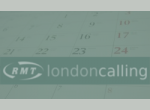When Chattel enslavement ended - not in 1807 as some would like us to believe but in 1838 - it was simply replaced by bonded enslavement whereby these same ‘freed’ Afrikans were forced to work on the very same plantation from which they had been ‘freed’.
Worst still, the people who had for so many years been exploiting, brutalising, raping and murdering them were compensated for these crimes, by the very same government who wanted to claim credit for their freedom.
No Afrikan has ever been compensated!
For us, as Trade Unionists, the argument is very simple: if we put aside the vicious, inhuman and barbaric way in which Afrikan people were treated - but we must never forget it - Workers were not paid; Deferred wages “getting lashes instead salary”.
When these wrongs were finally admitted, Afrikans were still not paid. Instead, the exploitation simply continued as another form of enslavement. Nuff said! Case made?
It would seem not!
This conference has been called to reflect the continuing effect that the enslavement of Afrikan people has had on the Black working class in particular and a global working class.
In 2001 the UN World Conference Against Racism declared enslavement of Afrikan people a crime against Humanity. (you there Mr. Brown?) This means it has no statute of limitation and Reparation must be obtained.
In February 2006, the Church voted to apologise to the descendants of victims of enslavement, recognising the damage done. It’s a start, but is an apology enough?
The Bank of England made capital available for ships voyages and the City became the financial centre of the trade in slave. Even the term ‘being in the Black’ was associated with when the organisation concern had ‘Blacks’. Lloyds of London insured slave voyages.
There were cases where Captains dumped their ‘entire cargo’ overboard because they had not stored enough food. They later won sizable claim from insurance companies.
Alexander and David Barclay were ‘slave traders’ who operated in the West Indies, and later founded Barclay’s Bank with their profits. Likewise Sir Francis Baring had major financial interests in slavery. His family eventually founded Barings Bank.
Would an apology from the benefactors and descendant of the above be enough to indemnify the wrongs committed?
There are countless examples of these benefactors still pedalling their wares of oppression globally, never proffered regrets.
Our annual conference is always held in August because in 1791, a brave group of Afrikans on the island of San Domingo rose up and fought against the heinous crime of enslavement. This was the richest and cruellest colony in the Western Hemisphere. More than one third of Afrikans died within a few years of being taken there. Led by Toussaint L’Ouverture they took on the then Super Powers of France, England and Spain and were victorious and in January 1804 they established the first free Afrikan state outside of Afrika, called Haiti. This tiny but powerful nation was broken with revenge attacks and reparation payment to France, to the point where today it cannot feed its own people.
- 2944 reads



